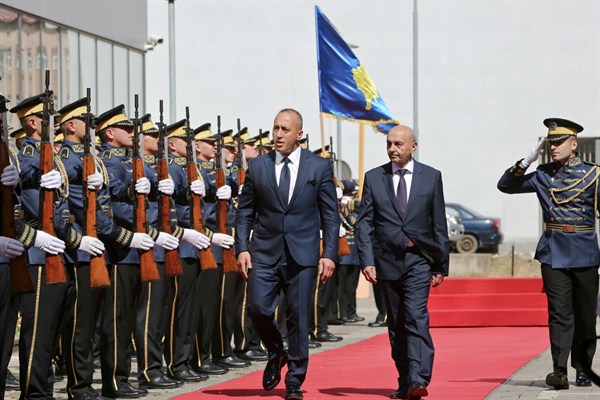Serbia’s short-lived withdrawal of all of its diplomats from neighboring Macedonia in late August, following a narrowly avoided regional trade war, brought the timeworn phrase “Balkan tensions” back into the news yet again. Both events are a sign of how strained international relations in the Balkans can still be, and of the difficulties that lie ahead as the region’s countries look to integrate into the European Union—and with one another.
However dramatic, the spat between Serbia and Macedonia was quickly smoothed over, at least on the surface. Serbian diplomatic staff returned to their embassy in Skopje four days after they were abruptly pulled out. Serbian President Aleksandar Vucic claimed that Belgrade had recalled its diplomats due to “evidence of very offensive intelligence against the institutions of Serbia.” He and Foreign Minister Ivica Dacic cited the involvement of “foreign powers,” which some of the more hyperbolic regional media took to mean alleged CIA machinations.
The way the quarrel played out mimicked trade tensions in early August sparked by Croatia, an EU member, which announced it would hike import inspection fees on some agricultural products by non-EU member states by a staggering 2,200 percent—from about $14 to $318. The Croatian Agriculture Ministry reversed course after a matter of days. Prime Minister Andrej Plenkovic put pressure on Agriculture Minister Tomislav Tolusic, who apparently hadn’t consulted him about the move. Not surprisingly, the fee hike had caused uproar among Croatia’s non-EU neighbors. Serbian Trade Minister Rasim Ljajic called the fee rises “absolutely protectionist,” while a senior Bosnian government source told me the move was “silly” and probably “a Croatian attempt to impose further barriers” to the influx of cheap products. In coordinated actions, Serbia, Bosnia, Montenegro and Macedonia threatened to retaliate with higher import fees on Croatian goods.

